This week, in two separate years, marked two landmark events in the Brontë story. It was a time for change in the Brontë family, and the coming days bring a major change for me as well, which I hope you won’t mind sharing with you. First, let’s look at two important Brontë events in 1815 and 1842.
We start by taking a journey back to February 8th 1815. It was a momentous month for European history, for in that month Napoleon left his exile on Elba, quickly assembled a large following and returned to France. It would spark a sequence of events which led to the Battle of Waterloo, 15 miles south of Brussels, just three months later.
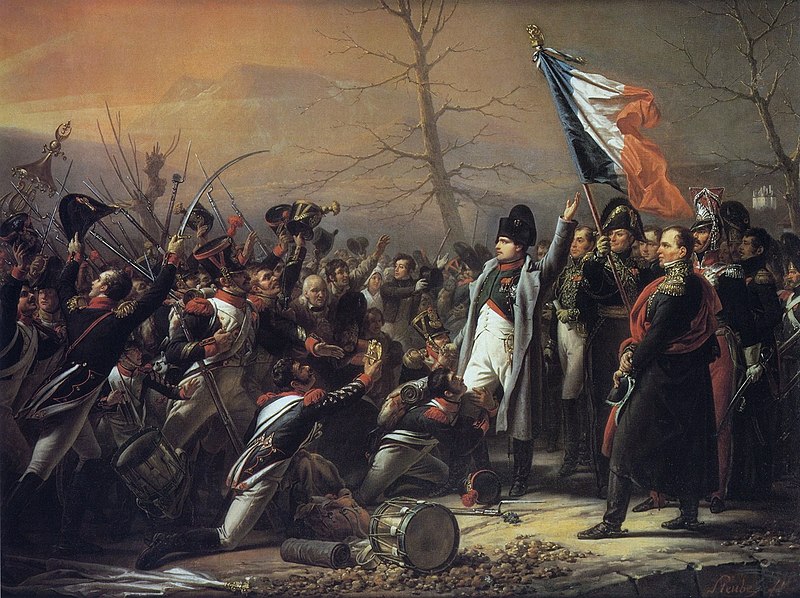
In Haworth a very different event was taking place for it was on February 8th that the second Brontë child was born. She was named Elizabeth after her mother’s elder sister Elizabeth Branwell, a woman who herself would come to play a vital role in the Brontë story. Alas, Elizabeth’s life would never get to fulfil her destiny but, as I explained in an episode on my The House Of Brontë channel, I think it’s unfair that Elizabeth has become a forgotten Brontë.
Elizabeth was not, as a child, as gifted academically as her elder sister Maria nor her younger sisters, but that is not to say that she couldn’t have developed those skills, and she was praised by those who knew her for her kindness, pragmatism and common sense. Those would have been valuable assets within the Brontë family, and I have little doubt that she would have made a telling and positive contribution if she had been granted further years.

Certainly it seems to me that Emily Brontë never forgot her sister Elizabeth, never forgot the sister who led her on her first tentative trips onto those moors which radiate from Haworth on three sides.I believe that Emily’s chosen pen name of Ellis is a tribute to Elizabeth Brontë, and she may also be found in the character of Zillah the housekeeper in Wuthering Heights – after all, Elizabeth was being trained to be a housekeeper at Cowan Bridge school.
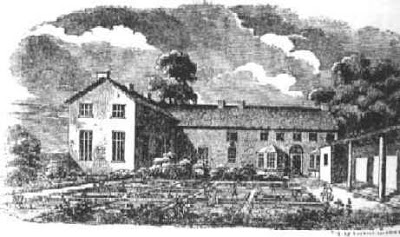
Let us wish Elizabeth Brontë a belated 210th birthday and hop forward to 1842. By this time her sisters and Cowan Bridge schoolmates Charlotte Brontë and Emily Brontë are setting out for another school – and their father Patrick is journeying with them.
On 8th February 1842 Charlotte and Emily Brontë began their journey from Haworth to Brussels, to enrol as adult pupils in the Pensionnat Heger school. Emily would be home a few months later, due to the death of the aforementioned Elizabeth ‘Aunt’ Branwell, but other than a brief return to Yorkshire Charlotte would remain in Belgium for two years.
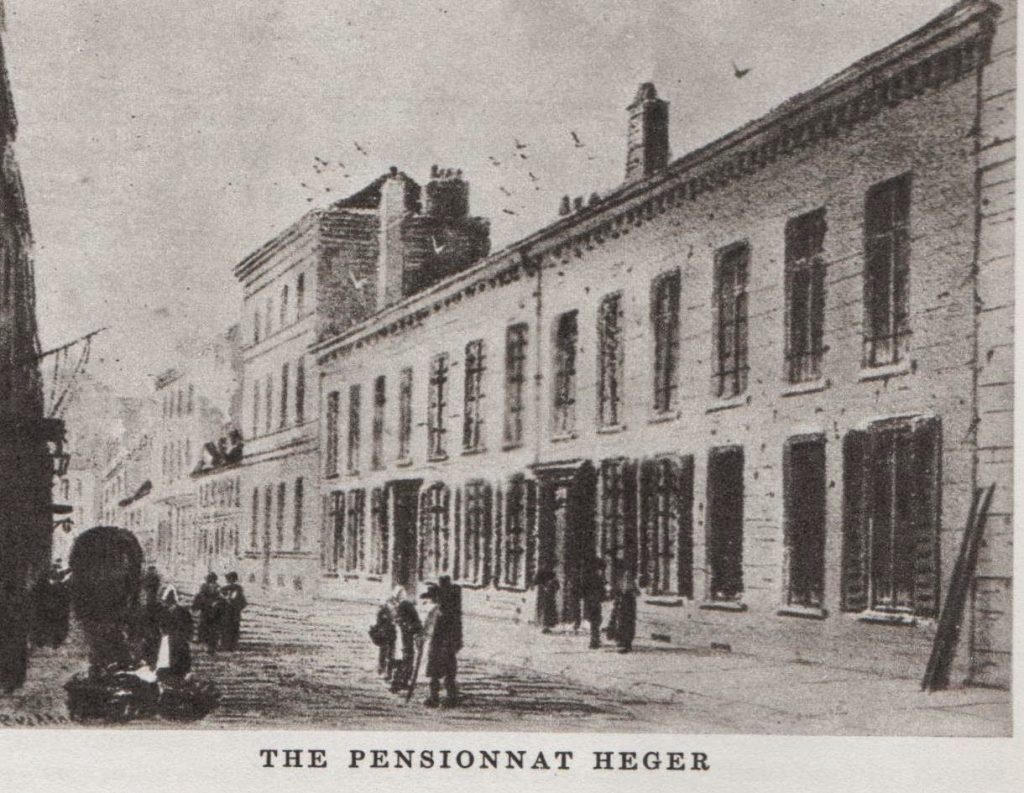
They were two tumultuous years, full of triumphs and trauma. Charlotte excelled as a pupil to the extent that she became a teacher in her second year – but above all else, the Brussels experience was one of loneliness and frustration for her. Charlotte fell deeply into an unrequited love for Constantin Heger, husband of the school’s owner Clare Heger. It would leave her heart and mind indelibly scarred, but from these scars burst forth some of the greatest literature the world has ever seen. Heger is, after all, undoubtedly the prototype for both Rochester in Jane Eyre and Paul Emanuel in Villette.
Patrick travelled to Brussels with his daughters partly because he wanted to see them arrive safely, of course, but partly because he wanted to visit the site of the Waterloo battlefield. He had created for himself an English-French phrasebook for his journey, listing words in English, then French, and then as they were pronounced. Using this book, after taking leave of Charlotte and Emily, he travelled on to the Waterloo site – linking again the years 1842 and 1815.
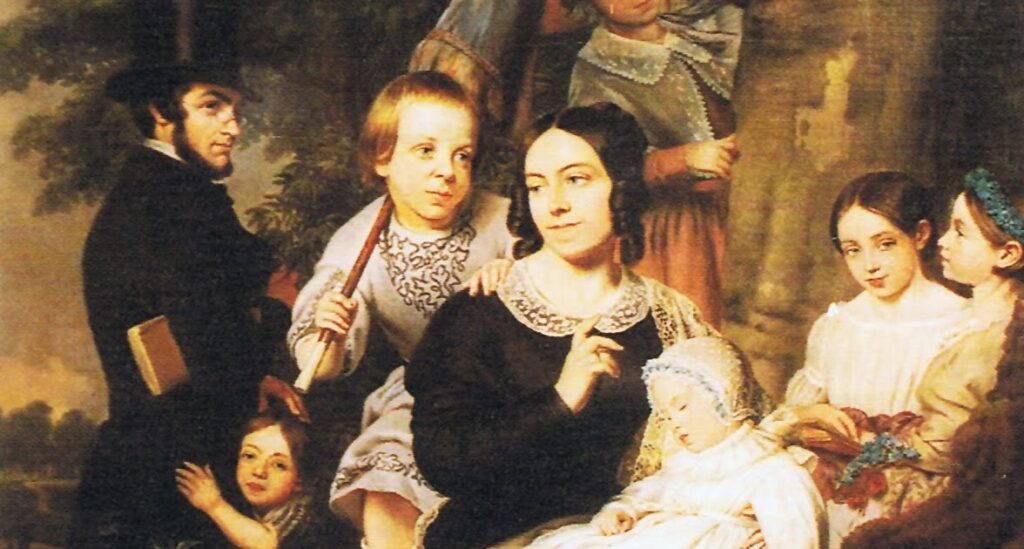
February 8th was a time of change for the Brontë family then, and the effects of those changes can still be seen today in the brilliant novels the world loves so much. It is one week also to a major change for myself.
I hope you won’t mind me sharing my very special news that next Saturday, 15th February, I will be getting married to my beloved Yvette. At the age of 53 I have found the most exquisite happiness, and I can’t wait to see my beautiful bride walk down the aisle. I’m a very lucky man, and of course I will still continue to produce my weekly Brontë blog posts as always. Some of you who have already known of my upcoming happy event have asked if they can contribute a gift. We would not at all expect that of course, but anyone who wishes to do so can send a gift via the following page: https://withjoy.com/nick-and-yvette/registry

Life changed for the Brontës and life is changing for me, but my love of all things Brontë remains undiminished. I’ve been writing posts for this blog for over nine years now, and long may that continue – and as always, I will never have adverts on this site. I look forward to seeing you next Sunday, after my own big day, for another new Brontë blog post.
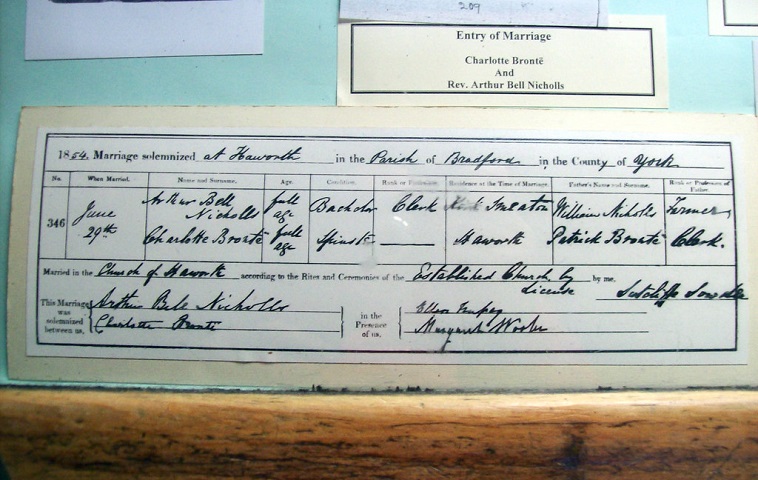
Dear Nick, wishing you and Yvette every happiness together. We will be thinking of you next Saturday. With very best wishes from all the team at The Brontë Birthplace, Thornton.
Congratulations and enjoy your wedding day next week.
Reading your blog on Sunday is always a highlight of the day, so long may it continue!
Thanks for the Brontë posts and very best wishes for your future together.
Congratulations to you both on your special day.
Congratulations to you both! And thank you for another interesting blog post. The “forgotten” Brontës played an important role in their lives, indeed.